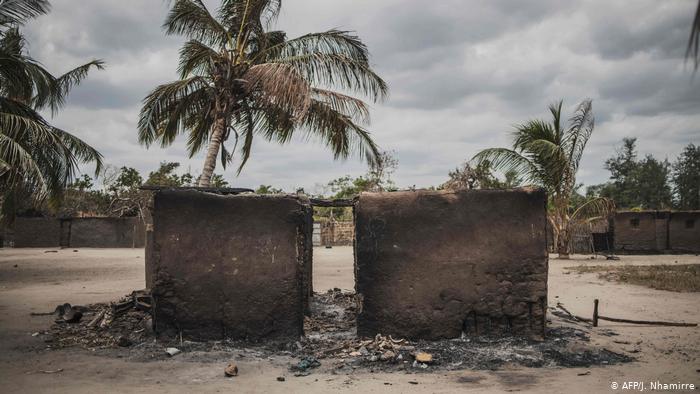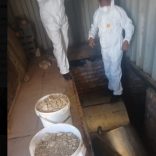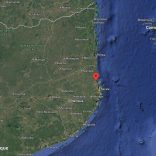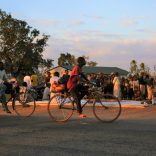Six Mozambicans, two South Africans still in jail as Hawks discover underground drugs labs in ...
Cabo Delgado: Weak state presence facilitated insurgent presence

FILE PHOTO: Adeia da Paz, Macomia, after an insurgent attack. [File photo: DW]
Mozambican researcher Sérgio Chichava says that Cabo Delgado has become “a propitious place” for Al-Shabab to set up. “There were already Mozambicans there ready to defend radical Islam,” he says.
The researcher at the Institute of Social and Economic Studies (IESE)speaks of “foreign individuals who had come to Mozambique fleeing the offensive by Congolese and United Nations troops, (…). Cabo Delgado was chosen because of its similarities with the eastern Democratic Republic of Congo, that is, an area rich in mineral resources but with a weak state presence”.
Speaking during a virtual conference entitled “The Internal and External Dimension of ‘Al-Shabab'”, Chichava added that the province “has been used as a gateway for illegal migration” and that “some studies suggest that about 500 people a day entered Cabo Delgado day from countries close to Mozambique, including the Great Lakes region”.
For the investigator, Cabo Delgado was “a propitious place” for Al-Shabab to settle. “There were already Mozambican individuals who were there to defend radical Islam,” he says, pointing to reports that many of the members of the Islamic group in the region are from Tanzania, “but that does not mean that Tanzania is the base of Al-Shabab”.
Creating a sharia-based society?
Eric Morier-Genoud, a researcher at Queen’s University Belfast, says the Islamic group is a sect dedicated to establishing “a society governed by Sharia law”.
“The idea of the sect is that it is a group of religious people who have left the city and distanced themselves from the state and society in order to build their own society – a counter-society according to their own rules – and the Al-Shabab correspond exactly to that sociological definition,” Morier-Genoud says.
For Chichava, despite its internal origins, the armed group is becoming internationalised.
“Although it has an internal origin, we are gradually seeing the evolution of a certain internationalisation. If we look at Al-Shabab, we see that it is also composed of foreign individuals,” he says, citing as examples its members from Burundi, Uganda and Tanzania.
The armed attacks began in October 2017 and, since the beginning of 2020, have been classified by Mozambican and international authorities as a terrorist threat. In two-and-a-half years of conflict, it is estimated that approximately 600 people have died, and about 200,000 thousand have been displaced in the search for places of safety.












Leave a Reply
Be the First to Comment!
You must be logged in to post a comment.
You must be logged in to post a comment.